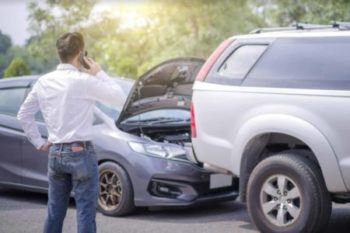
If the at-fault driver does not own the vehicle that he or she crashed, the owner can be held responsible for the damages that occur. Liability might attach to the owner if the driver was the owner’s agent at the time of the crash or the owner negligently entrusted his or her car to the driver.
Agency
If the at-fault driver was performing an errand or some other type of activity when the accident occurred, the principal or the person who sent the driver to perform the task could be held liable for the negligence of the driver under agency. Generally, agency applies when the driver is an employee of the vehicle’s owner or the owner’s family member or friend.
Agency Relationship Through Employment
An employer can be held liable for an accident caused by an employee. These two conditions must be met for this to occur:
- An employer-employee relationship must exist
- The employee’s actions fell within the scope of employment when the accident occurred
Generally, an employer should not be held liable if the at-fault driver was hired as an independent contractor. Nevertheless, courts usually consider multiple factors to determine whether a person is an independent contractor or an employee.
Scope of Employment
An employee’s actions will fall within the scope of employment if driving the car is part of his or her work and is committed to further the employer’s business at an authorized place and time. An employee’s actions will not fall within the scope of employment if they are different from what is authorized, if they occur far beyond the geographic limits or time of the work, and they are not motivated by serving the employer’s interests.
Minor deviations relating to place and time are considered to be within the scope of employment. Consequently, an accident after a minor variation may still subject the employer to liability under Illinois law.
Agency Through Friendship or Familial Relationships
Under the agency theory in Illinois, a child’s negligence can be pinned on the parent if the child was performing a task at his or her parent’s request. Parents could be held liable for an accident caused by their child if the child was doing his or her parents’ business or running an errand for them when the accident happened.
Parents will not be held liable for the damages that a child causes if he or she drove the car for his or her own purposes, even if the parent allowed that use. However, the jury considers several factors to determine whether a child’s action is a family errand or business.
A car owner can also be held liable for the damages caused if he or she lends a car to a friend and the friend causes an accident.
Negligent Entrustment
Negligent entrustment is a recognized tort in Illinois. A car owner can be sued for negligent entrustment if he or she was negligent in allowing someone else to drive the vehicle, and then the person caused an accident.
In a negligent entrustment claim, the owner must have consented to the at-fault driver’s use of the vehicle. It should also be proven that the owner knew or should have known that the person was likely to cause damage or injury. Therefore, if a vehicle owner lends his or her car to someone who is intoxicated by drugs or alcohol, is known for drunk or reckless driving, or is inexperienced, then the owner can be held liable for the damages resulting from an accident.
To recover damages under negligent entrustment theory, a victim’s auto accident attorney will look for facts that prove:
- The owner entrusted the vehicle to the at-fault driver.
- The driver operated the vehicle in a negligent way.
- The driver had red flags or a history of warning signs that made him or her unfit or incapable of driving safely, and the owner knew or should have known.
- The driver’s incapability to drive safely significantly contributed to the accident, which led to the victim’s damages.
Liability Insurance
Liability insurance typically follows the vehicle, not the driver. Even if the owner is not held liable because there is no theory of liability, his or her insurance might still apply to the person who was driving the vehicle with the owner’s permission and caused an accident. The owner’s insurance is the primary coverage that will likely be called upon to pay for injuries or damages.
The owner’s insurance will not cover the driver if the owner specifically excluded that driver on the insurance policy. If the owner’s insurance and the at-fault driver’s insurance cannot cover all the damages to a victim, the victim’s auto accident attorney can try getting compensation from the involved parties directly.

